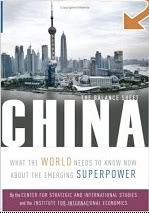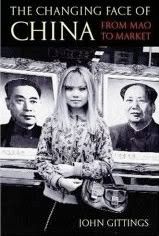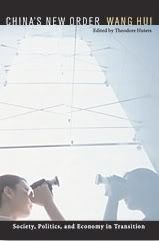The Modern Market Economy and the Rule of Law
Yingyi QIAN
Perspectives, Vol. 1, No. 5
This essay is about the relationship between the market economy and the rule of law. My assertion is that the fundamental rule of game in a modern market economy is the rule of law.
1. Three Types of Economic System: Planned Economy, Traditional Market Economy and Modern Market Economy
Just about everyone in China is in favor of market economy now. But we are far from being able to claim that we have constructed a mature market system in China. Nor can we assert that our economists or leaders already have a good understanding on how a market economy works. On the contrary, our understanding of the modern market economy has long been tainted by the history of a planned economy as well as a petty-peasant economy. In today's world, there are good market economies as well as bad ones, and there are more cases of the latter than of the former. Historically, an overwhelming majority of countries had bad market economies for very long periods of time. Indeed, in the history of mankind, the transition toward the modern market economy is only a recent phenomenon.
What, then, is the institutional foundation of a modern market economy as opposed to a planned economy? One difference between a market economy and a planned economy lies in the mechanism of resource allocation: a market economy relies on market prices to allocate resources, whereas a planned economy uses administrative commands of planned quantities. At a deeper level, the core of a market economy is a free enterprise system, while the essence of a planned economy is state ownership of firms.
There are, however, more than one kind of market economy. For purpose of this article, I will identify two types of market economy: the traditional market economy and the modern market economy. Market economy is nothing novel: it came into existence long before the planned economy. A traditional market economy is not just characterized by small-scale market activities. From the perspective of the new institutional economics, a traditional market economy has two important characteristics. First, contracts between economic agents are enforced mainly through reputation mechanisms rather than by a neutral third party such as the state. Secondly, the state is not constrained institutionally vis-¨¤-vis business enterprises and individuals. In other words, there is no distance between the government and the market.
Economic historians such as Douglass North and Nathan Rosenberg attributed the rise of the West to a fundamental transformation of the relationship between the state and the business enterprises to an "arm's length type;" that is, the government started to distance itself from private individuals and business enterprises. Since the Glorious Revolution in 1688, the English royal power has gradually retreated from commercial activities. Henceforth, the relationship between the state and the economy has fundamentally changed. The rule that emerged to stipulate the relationship between the state and the economic agents was the rule of law. This change in the state-market relationship is the origin of the modern market economy based on the rule of law.
The Fourteenth Congress of the Chinese Communist Party (CCP) stipulated the concept of "socialist market economy," and the Fifteenth Congress of CCP further endorsed the principle that "non-public ownership of enterprises is an important part of the economy" and "the country is governed according to law." To date our economists still have not fully integrated these three principles into their thinking of the economic reform. We should be aware that the very essence of the modern market economy is an independent and autonomous enterprise economy based on free transactions and operated under the rule of law. In contrast, both planned economies and traditional market economies do not build themselves under the rule of law. One of the most important distinctions that separate a bad market economy from a good one is that, in a bad market economy, there exists an unhealthy relationship between the state and the economic agents (including business enterprises) due to the absence of the rule of law.
2. The Two Economic Functions of the Rule of Law
People often associate the word "democracy" with the word "rule of law". I do not intend to dwell upon the issue of democracy here. Neither do I want to focus on the intrinsic moral values of the rule of law. What I want to focus here is on how the rule of law works in a market economy. In other words, I want to look into how the rule of law facilitates economic efficiency and development.
All economic systems are governed by certain rules of game, and the governing rule for a modern market economy is the rule of law. The rule of law has two economic functions. First, the rule of law regulates and limits discretionary interventions of the state in economic activities. Secondly, the rule of law regulates the economic behavior of individuals and enterprises to create an orderly, stable environment with fair competition, clearly defined and well protected property rights, and effectively enforced contracts. In essence, these two economic functions of the rule of law are about regulating the relationship between the state and the market through legal institutions so that economic development is both possible and sustainable.
The first economic function of the rule of law is to constrain government arbitrariness. This is where the fundamental differences between the "rule by law" and the "rule of law" come into play. The rule by law is by no means a novel idea to us Chinese. An emperor could govern his citizens by means of legal codes. In contrast, an important part of the rule of law is about how common people can constrain the government's power by legal institutions. Only the rule of law can safeguard a free economy. If the government's behavior is not constrained, then no economic freedom can be guaranteed, and in turn there will be no modern market economy.
Why is it so important to limit the government's discretionary influence on economic activities? First of all, the government naturally has greater power than individuals because the government possesses an array of coercive means, an example of which is the police force, that common people do not have. Secondly, without constraint, it is very hard for the government to refrain from discretionary interventions that are often arbitrary and harmful to economic activities. An example of such arbitrary discretionary intervention is the numerous unauthorized fees charged by local governments in China. Thirdly, as economic agents rationally anticipate such government behavior, they become reluctant to invest, chase short-term and small-scale projects, and bribe government officials. This is one major reason why some economies stagnate. It is actually a "lose-lose" situation for both the government and the economic agents, because through arbitrary interventions the government hurts itself with reduced tax revenues due to lower incentives and distorted investment. Economists regard this kind of problem as a lack of "credible commitment" from the government.
How can we establish credible commitment from the government? Credible commitment can be established by constraining government behavior through the rule of law, which will ultimately bring a "win-win" situation. The logic here is a reverse of the "trap of economic stagnation" discussed above. First, the government, constrained by law, cannot arbitrarily interfere with economic activities. For example, under the rule of law, the government cannot arbitrarily restrict economic activities, cannot impose arbitrary charges, and cannot change economic policies frequently and arbitrarily. Secondly, anticipating a stable and friendly economic environment, individuals as well as business enterprises will rationally make long term investments. Thirdly, with the economic vitality resulting from motivated economic agents, the government can actually harvest more tax revenues. This logic resembles the mechanism of increasing total taxes by cutting marginal tax-rates, but here the issue is not about tax rates; instead, it concerns a credible commitment from the government not to prey on individual initiatives.
Through the above analysis we see a paradox of power. As the power of the government enlarges, the government can act more easily upon its own will, which renders its promises less credible. If economic agents do not believe in the government's policies, they will not have incentives to work or invest. Conversely, the rule of law constrains the government's behavior, which makes the government's promises more credible, which in turn benefits the government itself. As an example, the English Glorious Revolution in the 17th century transferred the tax power from the Crown to the parliament. In the war between Britain and France, which came after the Glorious Revolution, Britain was able to finance a substantial amount of military expenses by issuing government bonds because the government had established credibility in repaying debts. In contrast, France, which still had a arbitrary Crown, was unable to do so.
The second economic function of the rule of law is for the state to enforce laws and contracts in an impartial way. This can be achieved only after the government distances itself from microeconomic decisions. Defining property rights, preserving fair competition, fighting monopoly and enforcing contracts are all essential to economic development because they are necessary for establishing credible commitments among economic agents. Without the enforcement of contracts, economic agents cannot become motivated because they will always worry about opportunistic behavior of the other parties to the transaction. But how can we establish an orderly market environment? The enforcement of contracts and preservation of competition should rest on the rule of law instead of the government's discretion. For example, the government should not be in a position to define arbitrarily what unfair competition is, or what business activities need to be regulated.
It is by no means an easy task for the government to act as a impartial arbitrator. For example, errors could occur during the enforcement of law, either unintentionally or intentionally such as when induced by vested interests. Therefore, under the rule of law, it is essential that individuals and business enterprises are empowered to challenge the government on laws, regulations and judgements and to sue the government if necessary. The Administrative Procedure Law and Administrative Redress Law that we have enacted is a promising start, but we still have a long way to go.
Another substantial barrier to the effective enforcement of law is the judicial corruption. Obviously, a corrupt judiciary, which gives rise to insecure property rights and ineffective contract enforcement, forces business enterprises to resort to the traditional way of making back-door deals instead of using legal methods when there is a dispute. This is one of the factors that suffocate economic activities. A better way to tackle the problem of judicial corruption is to create better institutions rather than relying on political campaigns.
In summary, the second economic function of the rule of law is fundamentally about how the government acts as an impartial "third-party" in economic transactions.
3. Two Current Examples
Two examples will help illustrate the relevance of the above analysis.
First, in the name of "normalizing the market," a variety of government interventions emerged in China in recent years to "strengthen rules and management" by requiring numerous permits and certificates for business activities. Except for a few requirements that were necessary, most of these measures were against the spirit of the rule of law. The economic goal of the rule of law is to minimize rent-seeking and encourage competition. In the West, one reason for some regulatory failures is that the government agencies may have been "captured" by certain industries. But at least their government's original intention was to protect consumers, except that it did not withstand certain economic temptations. But we Chinese have gone further. For one example, certain government transportation bureau, instead of representing consumer interest and encouraging competition, openly establishes price monopoly. For another example, many municipal governments restrict the influx of peasants by creating numerous permits. Our rice and oil coupons already resting in history museums, it is now the time to collect permits and certificates. Even more alarming are some government agencies that are obtaining monopoly profits in the name of national security.
Regarding these certificates and permits, I wrote in my article "A Tale of Silicon Valley," published in the January 2000 issue of the "Journal of Comparative Economic and Social Systems," that Bill Gates and Steve Jobs might not be able to receive our "engineer certificate" because they never finished college. The early Apple computer probably also could not be certified by our academic experts as a "high tech" product because it was really a toy. But Gates, Jobs and the Apple computer are the legends of our time and the symbols of creativity and economic success. Imagine what the world would look like if Gates and Jobs could not develop their ideas because they could not obtain certain "certificates!"
Nowadays, business enterprises and individuals in China are suffocated by large-scale rent-making activities of government agencies under the name of "strengthening the management of the market." If these activities continue, they will create the kind of "institutionalized corruption" found in Latin America and India, which would produce a bad market economy. We should not on the one hand try to combat corruption, but on the other hand create new opportunities for rent-making and open more doors for corruption. It is worth noting that many countries including India are loosening government control in favor of market freedom while we Chinese are moving in the opposite direction. The irony is that one of India's motivations for reform is "China's success in reforms in the past ten-plus years!"
The rule of law is probably more important than "privatization." Russia's example is very illuminating. The relationship between the Russian government and their business sector did not change much after the privatization as the government continues to harass business enterprises and suffocate business initiatives. Therefore, I disagree with the proposition that "sell all, then everything will be OK." The key, instead, is whether the government can keep a distance from businesses after privatization.
Some regulations are needed, such as regulations of the securities market. And some permits are also called for. But a fundamental characteristic of a modern market economy based on the rule of law is a real separation between the government and the business sector. As such, it is wrong to implement and strengthen "macroeconomic management" at each level of government and in each government agency. In fact, the more extensive are government regulations, the more likely there will be corruption.
My second example concerns the problem of income inequality. This is not only an issue of fairness; it is also an issue of economic efficiency. Inequality may result in social unrest and instability. There are two very different approaches to address the problem of income inequality. One approach is to strengthen government intervention by taking more away from the rich and giving more to the poor through a radically progressive income redistribution program. This approach can be very dangerous and may bring us back to the era of "eating from one big bowl." There is an alternative approach, which recognizes the fact that people are most resentful to inequalities that are the results of corruption and power abuse. Few people in the United States complain about the new multi-millionaires in Silicon Valley. But if someone is enriched through power abuse and corruption, even if it is only a hundred thousand dollars, people would be very upset. At the root of corruption and power abuse is unconstrained government power, and the solution is not to increase government intervention, but rather to decrease intervention so as to reduce rent-making and rent-seeking opportunities. Therefore, the rule of law is an important measure for combating corruption and alleviating income inequality.
4. Constructing a Market Economy on the Basis of the Rule of Law
To continue our successful reforms of the last twenty years, China now needs to embrace some new ideas. Our goal for the next ten to twenty years should be to construct a modern market economy on the basis of the rule of law. External conditions such as joining the World Trade Organization and the globalization of economy and trade have made achieving this objective even more pressing. We are also facing enormous pressures internally, examples of which include the lack of economic vitality, increasing unemployment rates, corruption, and income inequality. To address these problems, we cannot move backward; we must rely on the establishment of the rule of law.
Our economists and policy-makers need to do a great deal of technical and operational works for future reforms. But first, we need to clear up misconceptions in our mindset. To correct these misconceptions, we not only need to abandon the mindset of central planning that has been with us for several decades, we also need to throw away the feudalistic mindset that has existed for thousands of years. The traditional Chinese culture does not have the concept of a "limited government" on the basis of the rule of law. But we have seen the successful examples of other Chinese communities such as Hong Kong and Singapore, which achieved phenomenal economic growth based on the rule of law. We should have confidence in ourselves.***
(The author is Professor of Economics at the University of Maryland. This article is based on a speech given at a conference on China's economic reform in Beijing on February 26, 2000. It is translated from Chinese by Minfang YAN and Duan WU.)
Link




0 Comments:
Post a Comment
Subscribe to Post Comments [Atom]
<< Home